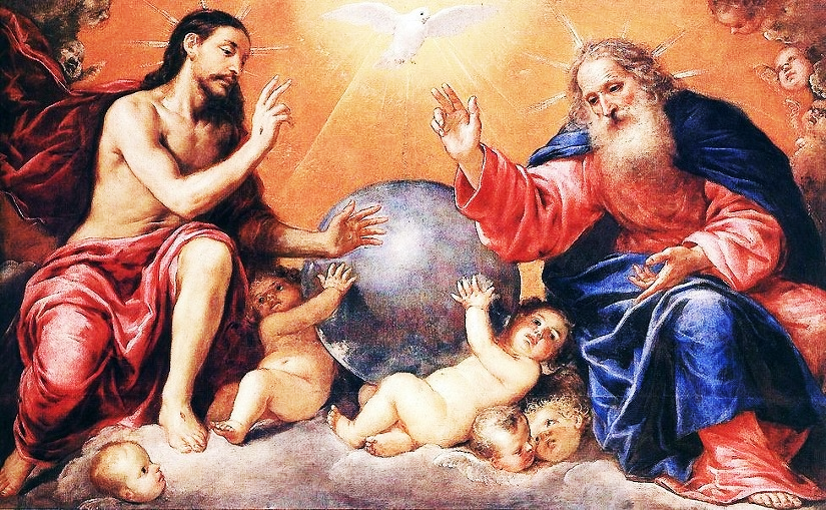ON GOD’S GOODNESS AND THE EXISTENCE OF EVIL.
Many people have posed these questions on the problem of evil. For this reason, I decided to post short Catholic answers taken from the “Compendium of the Catholic Church,” with references to the pertinent numbers in the more extensive Catechism which deals with the same questions in order to provide clear, concise and correct Catholic answers.
COMPENDIUM, N. 57. IF GOD IS OMNIPOTENT AND PROVIDENT, WHY THEN DOES EVIL EXIST?
To this question, as painful and mysterious as it is, only the whole of Christian faith can constitute a response. God is not in any way – directly or indirectly – the cause of evil. He illuminates the mystery of evil in his Son Jesus Christ who died and rose in order to vanquish that great moral evil, human sin, which is at the root of all other evils.
See as well, Catechism of the Catholic Church, nn. 309-310, 324, 400
COMPENDIUM, N. 58. WHY DOES GOD PERMIT EVIL?
Faith gives us the certainty that God would not permit evil if he did not cause a good to come from that very evil. This was realized in a wondrous way by God in the death and resurrection of Christ. In fact, from the greatest of all moral evils (the murder of his Son) he has brought forth the greatest of all goods (the glorification of Christ and our redemption).
See as well, Catechism of the Catholic Church, nn. 311-314, 324
311 Angels and men, as intelligent and free creatures, have to journey toward their ultimate destinies by their free choice and preferential love. They can therefore go astray. Indeed, they have sinned. Thus has moral evil, incommensurably more harmful than physical evil, entered the world. God is in no way, directly or indirectly, the cause of moral evil.176 He permits it, however, because he respects the freedom of his creatures and, mysteriously, knows how to derive good from it:
For almighty God. . ., because he is supremely good, would never allow any evil whatsoever to exist in his works if he were not so all-powerful and good as to cause good to emerge from evil itself.177
312 In time we can discover that God in his almighty providence can bring a good from the consequences of an evil, even a moral evil, caused by his creatures: “It was not you”, said Joseph to his brothers, “who sent me here, but God. . . You meant evil against me; but God meant it for good, to bring it about that many people should be kept alive.”178 From the greatest moral evil ever committed – the rejection and murder of God’s only Son, caused by the sins of all men – God, by his grace that “abounded all the more”,179 brought the greatest of goods: the glorification of Christ and our redemption. But for all that, evil never becomes a good.
313 “We know that in everything God works for good for those who love him.”180 The constant witness of the saints confirms this truth:
St. Catherine of Siena said to “those who are scandalized and rebel against what happens to them”: “Everything comes from love, all is ordained for the salvation of man, God does nothing without this goal in mind.”181
St. Thomas More, shortly before his martyrdom, consoled his daughter: “Nothing can come but that that God wills. And I make me very sure that whatsoever that be, seem it never so bad in sight, it shall indeed be the best.”182
Dame Julian of Norwich: “Here I was taught by the grace of God that I should steadfastly keep me in the faith… and that at the same time I should take my stand on and earnestly believe in what our Lord shewed in this time – that ‘all manner [of] thing shall be well.'”183
314 We firmly believe that God is master of the world and of its history. But the ways of his providence are often unknown to us. Only at the end, when our partial knowledge ceases, when we see God “face to face”,184 will we fully know the ways by which – even through the dramas of evil and sin – God has guided his creation to that definitive sabbath rest185 for which he created heaven and earth.
NOTES CITED IN THE CATECHISM OF THE CATHOLIC CHURCH.
176 Cf. St. Augustine, De libero arbitrio 1,1,2: PL 32,1221-1223; St. Thomas Aquinas, STh I-II,79,1.
177 St. Augustine, Enchiridion 3,11: PL 40,236.
178 Gen 45:8; 50:20; cf. Tob 2:12 (Vulg.).
179 Cf. Rom 5:20.
180 Rom 8:28.
181 St. Catherine of Siena, Dialogue On Providence, ch. IV, 138.
182 The Correspondence of Sir Thomas More, ed. Elizabeth F. Rogers (Princeton: Princeton University Press, 1947), letter 206, lines 661-663.
183 Julian of Norwich, The Revelations of Divine Love, tr. James Walshe SJ (London: 1961), ch. 32,99-100.
184 1 Cor 13:12.
185 Cf. Gen 2:2.
Cordially inviting you to like and follow our FB page in http://www.facebook.com/CatholicsstrivingforHoliness and share our posts to help more people in their Christian life. Thanks! Fr. Rolly A.
ORIGINAL PHOTO SOURCE: http://cfile239.uf.daum.net/image/1259BB504FC734D61F2F7A
